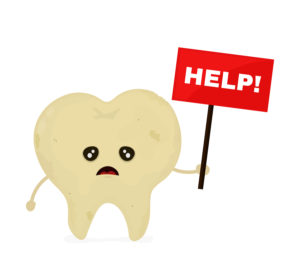5 Things You Should Never Do With Your Teeth


While there are some things you should avoid doing with your teeth, there are other proactive steps that you should take to optimize your elderly oral health, such as practicing good oral hygiene and seeing a dentist at least twice each year.
Top Five Don’ts For A Healthy Smile
Let’s start with the things that you shouldn’t do if you want your teeth to remain in good condition.
- Don’t use tobacco products: Smoking and chewing tobacco can stain your teeth and cause inflammation in your gum tissue.
- Don’t use your teeth as tools: Your teeth weren’t designed to open bottles or crack nutshells, so don’t use them for that.
- Don’t gorge on sugar: Harmful oral bacteria feed on sugar, so if you provide them with this nutrient source, they’ll be more likely to cause problems like cavities or gum disease.
- Don’t chew on hard non-food items: Your teeth are meant for chewing food, not fingernails or pencils or anything else of the like.
- Don’t slack on oral hygiene practices: Brush and floss your teeth as directed by your dentist.
If you’ve been doing anything listed above, it’s time to quit. For older patients, it can be even more difficult to break decades of bad habits that can harm your smile. Nonetheless, it can be done. Furthermore, it’s important to do so in order to protect your smile and keep it intact as you age.
Best Practices For Taking Good Care Of Your Teeth And Gums
It’s not enough to just avoid or break bad habits. You must create good ones in order to maintain your smile. Namely, make sure that you are practicing good oral hygiene and seeing your dentist at least twice a year for preventive care.
As you get older, you may find that certain medical conditions make it more difficult for you to brush and floss. If that is true in your case, consult with your dentist to see what kind of tools might be helpful with brushing and flossing.
Additionally, physical limitations may make it difficult for patients to get to the dentist for cleanings and exams. In such cases, homebound care can help those patients access the valuable routine care that will preserve their smile.
For more information or to schedule an appointment, call our office today.